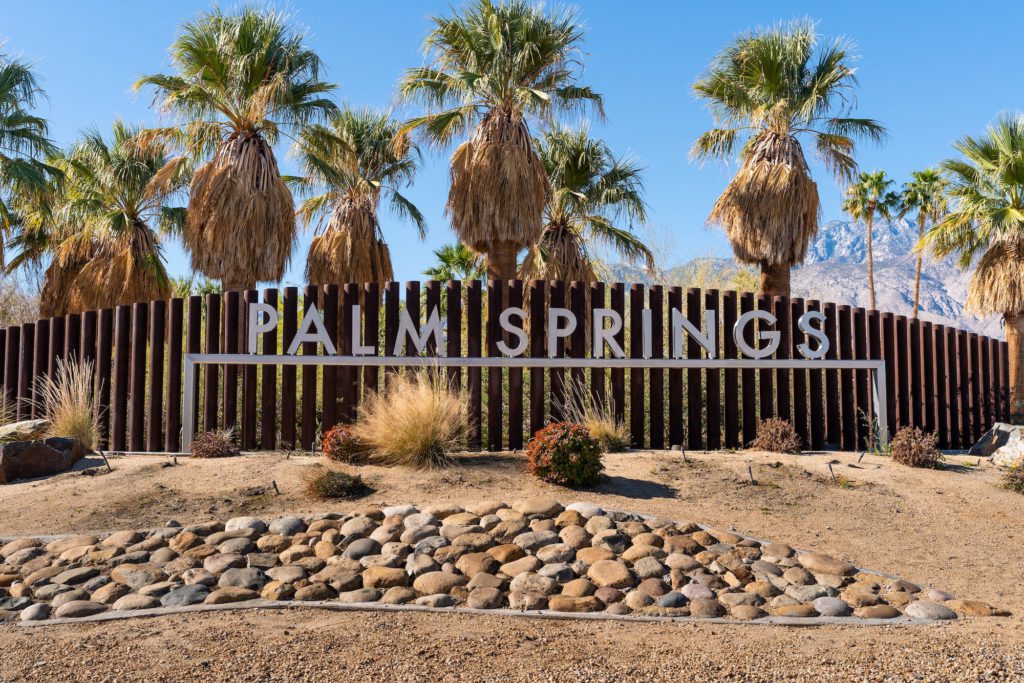
Palm Springs Protects The Right To Rent—For Now
Bucking a growing trend toward harsh vacation-rental limits in the Coachella Valley, Palm Springs is allowing vacation rentals to operate unimpeded—for now. With a more than 25% increase in short-term rentals over the past three years, the popular desert resort is on pace to see exponentially higher VR growth in 2022. But recent local media coverage shows that opposition to VR expansion is growing, too. The biggest complaint: noise.
“As it stands now, when a homeowner calls the Vacation Rental Hotline to complain about noise, a code enforcement officer is dispatched to measure noise levels with a meter. But unless the STR is blasting amplified music, it’s almost impossible to catch a noisy renter and issue a citation. That’s because people screaming, dogs barking, etc. must be at a constant level for a sustained period of time, which is not how most people party.
So a homeowner might be awakened at 2 a.m. by partiers, but the odds of catching them in the act is slim. This is not to mention the fact that it’s the full-time homeowner who has to be the first responder: getting out of bed, reporting the incident, waiting to hear back from an officer, meeting the officer to give access to the homeowner’s adjacent yard to take readings, etc.”
-Hank Plante, Desert Sun
Unless vacation-rental operators address the noise and nuisance issue, it’s likely they can expect to see city council votes and ballot initiatives like those in Rancho Mirage, Cathedral City and Palm Desert that ban or severely limit short-term rentals.
The City Of Big Bear Lake Faces Harsh New Ballot Initiative
The Big Bear Lake city council has voted against a proposed cap on vacation rental permits. But a group called Big Bear United to Limit Short Term Rentals is working to get a cap initiative on the April 2022 city ballot. In the meantime, NoiseAware, in conjunction with Vrbo, has partnered with the city of Big Bear Lake to help solve noise, and the problems associated with it, by incentivizing permit-holders and fostering good community relationships.
Currently, vacation-rental permit-holders in the City of Big Bear Lake can get $150 off of their annual permit fee when they purchase of a one-year NoiseAware subscription, including an indoor and outdoor sensor, at a 50% discount (total = $149.50). Owners and property managers who want to give voters fewer reasons to vote against STRs can get more details on the NoiseAware permit credit program here.
Florida Considers Statewide STR Regs, Gold Coast Cities Consider Noise Measures
Florida is once again considering statewide regulation of vacation rentals. The key players in the debate over VR regulation are the state lodging industry, which wants VRs regulated like hotels; cities and counties, which want local control over regulations; and the OTAs, which want uniform regulation instead of the state’s current hard-to-navigate patchwork.
Currently two state bills are in front of regulatory reform subcommittees. SB 512 includes provisions covering OTA tax collection and remittance, and registration fees and fines for failing to register. HB 325 adds in authorization of cease and desist notices for certain violations.
While the vacation-rental industry is largely unregulated in the Sunshine State, individual Florida cities are starting to take preemptive actions to protect neighbors. Hollywood, Fla., for example, requires vacation rental permits. And those permits require the holder to verify their property is equipped with a noise detection device that saves decibel-level data for at least 180 days. The data must be available upon request from the city.
Still to be seen is whether nearby Miami or Fort Lauderdale will add a noise-device requirement to their own, but in the meantime, many vacation-rental owners and property managers are implementing the devices in order to prevent neighbor complaints, late-night property visits and thousands of dollars in property damage associated with noise and parties.
Scottsdale Anti-STR Group Rallies Residents To Take Action
An estimated 6% of all households in Scottsdale are currently listed as vacation rentals for at least part of the year. That number is expected to rise in 2022. But not without growing opposition. A recent Phoenix New Times story noted that the Scottsdale police have been inundated with calls about vacation rentals, mainly due to excessive noise and parties.
Because of SB 1350, Arizona’s 2016 law essentially preventing municipalities from enacting short-term-rental regulations, cites have largely been left to come up with whatever solutions they can via existing code enforcement. The lack of oversight has given rise to one particularly vehement group called Neighbors Not Nightmares, which is actively fighting short-term rentals in Scottsdale and Phoenix. The group is focused on parties, occupancy violations, noise and nuisance complaints, which have risen steeply as travel restrictions in the U.S. have lifted.
“With no local zoning and no rules, of course things are out of hand. As STRs proliferate uncontrolled, Party Houses are now turning into “Party Zones”. One jurisdiction in Arizona had a 114% increase in complaints on STRs. 45% of Police Department responses now relate to Short Term Rentals.”
-Neighbors Not Nightmares
With so much at stake in this popular resort community, expect vacation-rental owners and managers to ramp up measures to prevent neighbor complaints, especially during the holiday season, as Experience Scottsdale (the city’s CVB) rolls out its “Heat Up Your Holidays” campaign. Those that don’t take proactive measures to curb disturbances and keep neighbors happy may find themselves facing much more oppressive short-term-rental regulations if the state revisits the law in 2022.
Natasha Garber covers short-term-rental industry trends, news, regulations and compliance for NoiseAware. Her posts on STR property management technology, privacy-safe noise monitoring, and licensing laws can be found weekly on the NoiseAware blog.